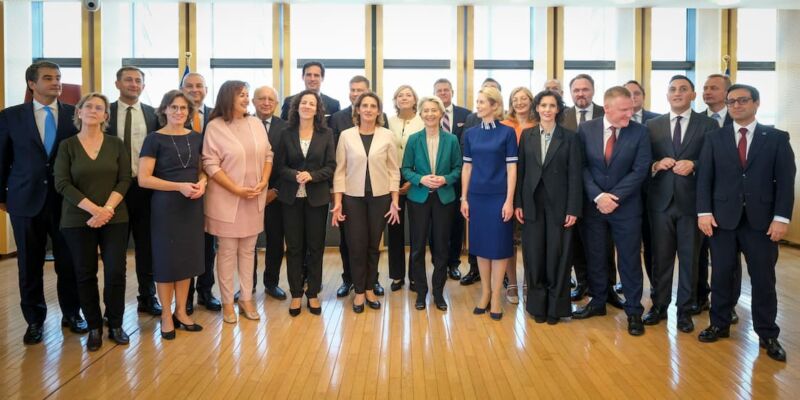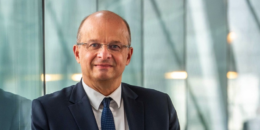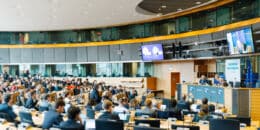On September 17th, Ursula von der Leyen unveiled the list of Commissioners-designate proposed for the 2024-2029 mandate.
With their appointment, these Commissioners-designate each received a mission letter detailing the projects they will be leading, thus revealing the legislative proposals and the strategies that are to be expected in the next five years, particularly in terms of climate action and industrial development.
In this new college, climate policy will be led by Teresa Ribera, Executive Vice-President of the Commission for a Clean, Just and Competitive Transition. On energy issues, she will supervise Wopke Hoekstra, Commissioner for Climate, Net Zero Growth and Clean Growth, and Dan Jørgensen, Commissioner for Energy and Housing.
It should be noted that the Commissioner for Transport, Apostolos Tzitzikóstas, will report to the Executive Vice-President for Cohesion and Reforms, Raffaele Fitto, and not to the Commissioner for Climate, as was the case in the previous mandate.
While a number of projects mentioned in the mission letters of Teresa Ribera and the Commissioners she supervises are a direct continuation from the previous mandate such as the Just Transition agenda or the revision of the Energy Taxation Directive, others reflect new orientations from the Commission.
The definition of climate objectives is no longer at the forefront of the Commission’s strategy
While the adoption of climate objectives for 2030 was the cornerstone of the portfolio of Frans Timmermans, the Executive Vice-President in charge of the Green Deal during the 2019-2024 mandate, the continuation of this project with the definition of climate objectives for 2040 is no longer the priority in the new mission letters.
In his mission letter, Wopke Hoekstra is required to enshrine the -90% emission-reduction target for 2040 in the European Climate Law and to prepare a legislative package to achieve this objective.
These two projects are the only ones that are related to adapting the legislative framework to post-2030 objectives, marking the Commission’s intention to prioritise in the next term the operational implementation of the energy transition over the definition of climate objectives.
Electrification as a key project of the Energy Commissioner
Electrification is a key part of Dan Jørgensen’s mission as he will have to present an Electrification Action Plan, to update the legal framework on European Grids to support rapid electrification and to adapt the current security of supply framework to the electrification of the EU’s energy system.
Electrification is also part of the missions of Apostolos Tzitzikostas, who is responsible for
speeding up the electrification of road transport, overseeing the build up of charging infrastructure and putting forward proposals for clean corporate fleets.
Nuclear power however remains largely overlooked in the new Commission’s project. Teresa Ribera is responsible for developing a new State aid framework to accelerate the roll-out of renewable energy – without nuclear power being mentioned. Dan Jørgensen is tasked with proposing an initiative to boost the roll out of renewable energy and to ensure that the industrial transition is powered by clean, locally produced electricity – further favouring renewables over other forms of low-carbon electricity.
In Wopke Hoekstra’s mission letter, the reference to a “technology-neutral” approach to the production of synthetic fuels indirectly leaves the door open to the use of low-carbon hydrogen. Yet, the only explicit mention of nuclear technology is in Dan Jørgensen’s mission letter and is about Small Modular Reactors, the deployment of which the Commissioner will have to support.
A strong overlap between energy-climate, competitiveness and industrial issues
In the new Commission, there is a significant overlap between energy-climate, competitiveness and industrial issues, which was not the case in the previous one and is reflected in particular by the supervision given to Teresa Ribera of the Directorate-General for Competition (DG COMP).
This overlap is also reflected in the mission letters. Teresa Ribera will have to deal with competitiveness issues as she will be responsible for revising the Horizontal Merger Control Guidelines and for addressing the risks of killer acquisitions by foreign companies. Wopke Hoekstra and Dan Jørgensen will also have to contribute to developing the Clean Industrial Deal and the Industrial Decarbonisation Accelerator Act.
The energy-climate commissioners will also have to lead initiatives related to financing issues. Teresa Ribera will have to simplify access to State aid and to support the implementation of the future European Competitiveness Fund. Wopke Hoekstra will be tasked with ensuring the efficient use of ETS revenues and adapting tax rules to encourage the adoption of clean technologies. Dan Jørgensen will propose a clean energy investment strategy aimed at unlocking the use of private capital.
EdEn’s opinion:
EdEn welcomes the priority given by this new Commission to competitiveness and industrial development over the definition of new climate objectives for 2040. It still remains to be seen whether this orientation will be translated into operational initiatives and measures in the next mandate.
EdEn will closely monitor the development of the Union’s industrial strategy. In particular, we will advocate for the EU to define the level of autonomy that it aims to achieve in the strategic sectors for decarbonisation and for the necessary measures to be adopted in order to support investment and to protect EU players from unfair competition from third countries.
EdEn also welcomes the role given to electrification in the new Commission’s project. Although electricity has been identified by the institutions as a key lever for decarbonisation, few initiatives have so far been carried out to promote its development. The fact that electricity consumption in the EU currently stagnates does not bode well for the energy transition and this issue needs to be addressed by the new Commission. EdEn regrets, however, that nuclear power remains a blind spot in the new Commission’s project and calls for the constructive discussions that took place between Member States and the Commission in the previous mandate to be continued in order for all decarbonised electricity sources to be put on an equal footing.
Credit photo : LE PICTORIUM/Alamy Live News







